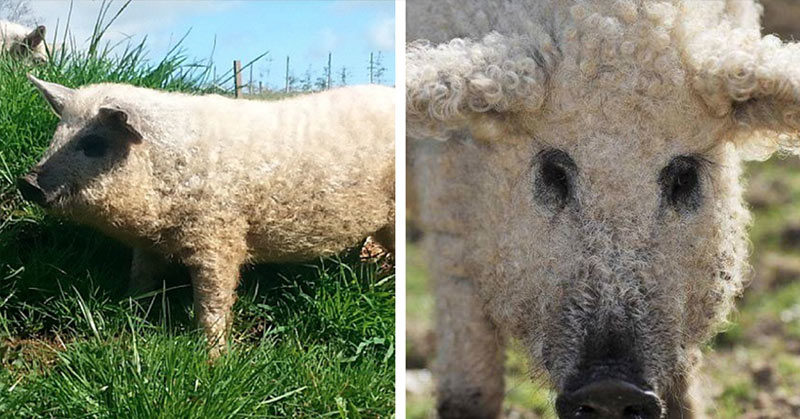Have you ever seen an animal and you can’t quite figure out what species it is? I’ve seen giant hamsters and thought they were baby rabbits. I’ve seen sheepdogs and called them furry lions. I can’t believe how many times I’ve fallen for the striped donkey trick and thought I was seeing a zebra. I’m that clueless with lovely animals sometimes.
This time, I can’t be the only one trying to decide if these adorable fuzzy sweethearts are either sheep, pigs, or dogs. Sheep are adorable animals coated with wool bags and it’s one of the reasons why people love having them on farms. Dogs are our perfect fur buddies and you can’t ever argue about their cuteness. Pigs, on the other hand, are not so high up on the cuteness scale. When most people think of pigs, they imagine sparsely-furred, snorting animals rolling about in mud all day long.
Well, the sheep pigs of Hungary are about to change your mind. They have no DNA of sheep or dogs, but somehow, they have the adorable features of both animals. On the outside, the Mangalica pig looks like a sheep with a full wool coat but with the face and legs of a pig [1]. As it moves and follows its owner all over the place, the sheep pig looks like an overfed, furry dog. They are some of the cutest animals you’d ever see and are mostly bred as pets and high-end meat sources in Europe, mostly because they produce too little lean meat for the farmhouse.
A Hungarian breed of domestic pigs

Also known as Managlista or Mangalitza, the sheep pig was first created when geneticists crossbred some hardy varieties of Hungarian pig (Bakonyi and Szalontai) with the European wild boar in 1833 [2]. They were also crossbred with a Serbian pig breed. The animals thrived well, growing fast and requiring no special care. They were originally intended for the tables of Austro-Hungarian emperors, but due to the rising availability of food and technology for preservation, the species became nearly extinct in the region by the mid-20th century.
The Mangalica was the most popular pig breed in Eastern Hungary until 1950. Their numbers progressively decreased from 30,000 to just over 200 as of 1991. They were almost functionally extinct when animal geneticist Peter Toth came to the rescue.
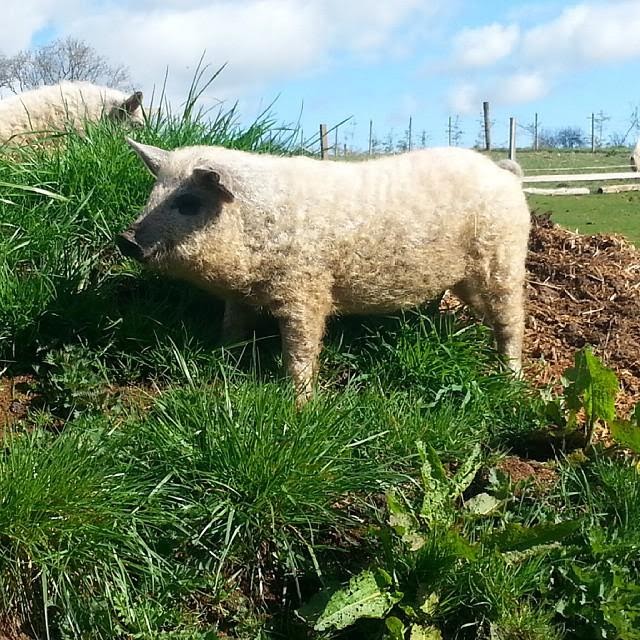
After the fall of the Berlin Wall in 1989, Toth acquired the last of the Mangalica to protect the species from total decimation [3]. Now the President of the Mangalica Breeders Association, Toth has worked hard to repopulate the species over the years with Hungarian farmers. There are said to be over 7,000 sows producing 20,000 to 60,000 piglets every year in the region.
The Mangalica make such adorable pets, and according to one breeder, “if you treat them nicely, they’ll become as tame as dogs–they’ll follow you, play with you.”
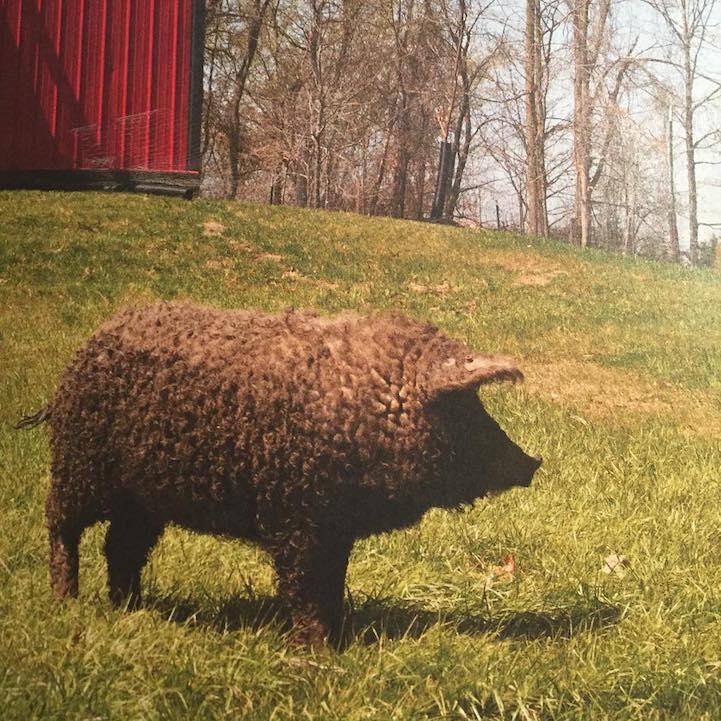
Mangalica varieties
The sheep pigs are also found in smaller numbers across Austria, Serbia, the Czech Republic, Switzerland, Canada, Germany, Romania, the United States, and Slovakia.
Many varieties of the Mangalica were originally developed, but most of them are either extinct or they never survived long enough to breed in thousands. The three main Mangalica varieties currently in existence are “swallow-bellied”, “blonde”, and “red”.
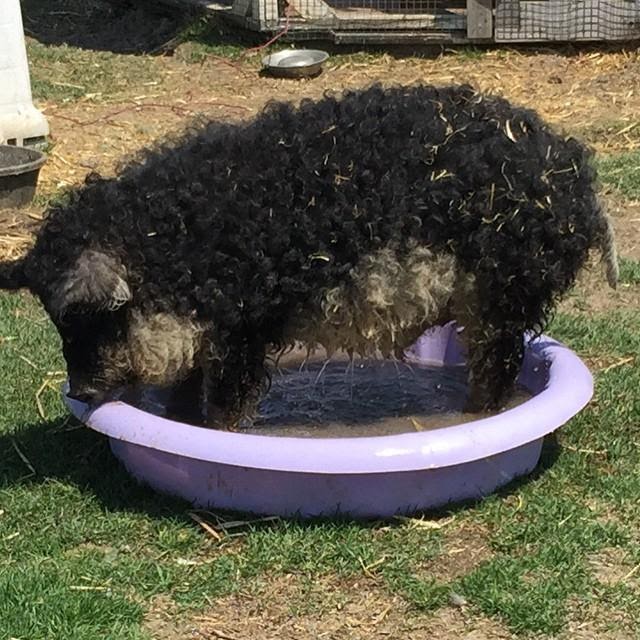
The swallow-bellied Mangalica has a black upper body with a blonde portion on its lower body. The red Mangalica is ginger-colored, while the blonde, as the name implies, is blonde-colored. Some of the extinct varieties are the wolf, black, and baris, although debates about their reproduction by crossbreeding pure varieties are on-going in Hungary.
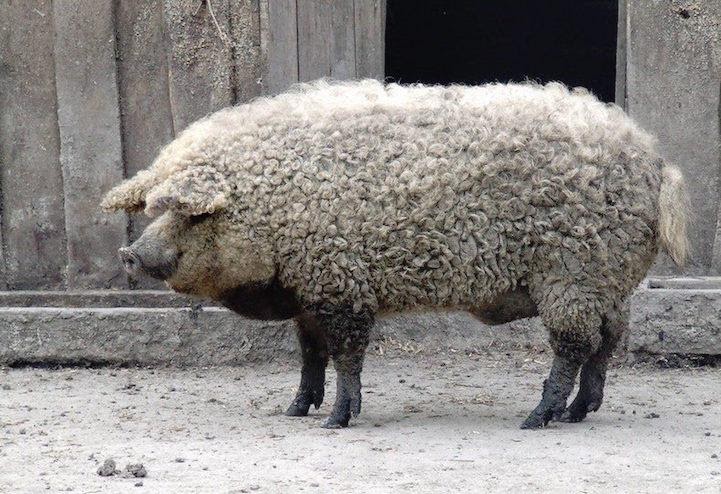
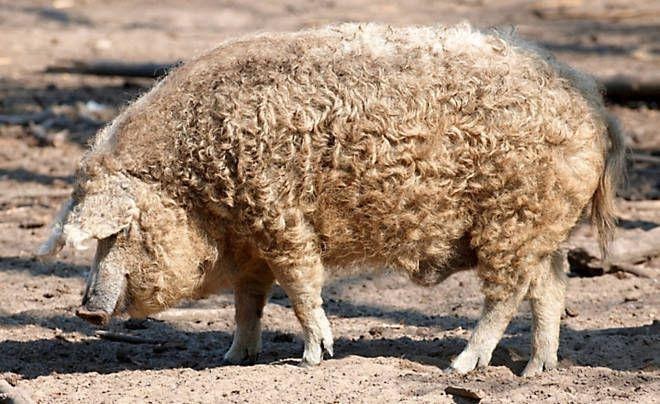

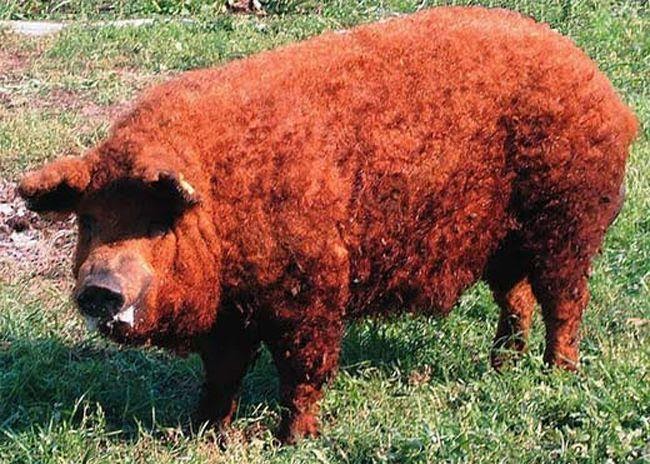
- Anna Gragert. Adorably Fuzzy Pigs Look Like Sheep and Act Like Dogs. My Modern Met. https://mymodernmet.com/mangalitsa-pig-sheep/ Retrieved 13-08-2020
- Dr. Radnóczi László. The Hungarian Mangalica. Agroservice Archive. https://web.archive.org/web/20120210223557/https://www.agroservice.hu/mangainfo1.htm Retrieved 13-08-2020
- Saving Mangalica: How the rare ‘sheep-pig’ was rescued. BBC. https://www.bbc.com/news/av/business-30042761 Retrieved 13-08-2020
